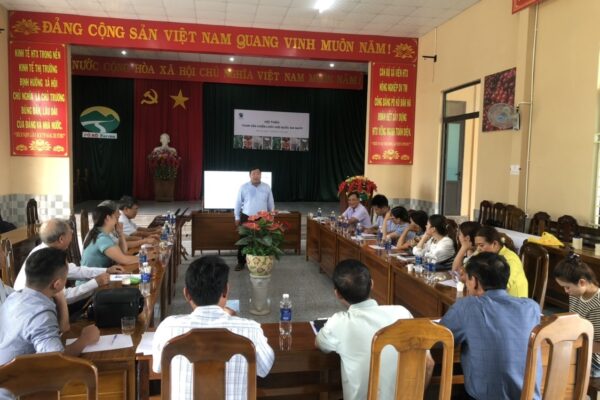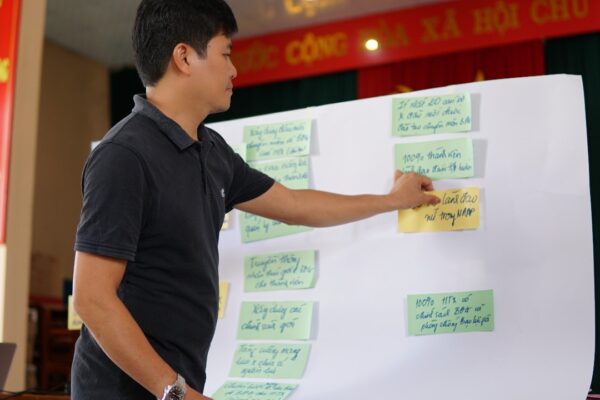How does Fairtrade help in changing the narrative of various gender equality? In Vietnam, Fairtrade NAPP has taken significant strides in gender advocacy this year by orchestrating a series of impactful training sessions as a resolute move towards fostering inclusivity. Fairtrade NAPP particularly, spearheaded a comprehensive gender advocacy training as a platform for fruitful exchanges, fostering diverse perspectives, insights, and proposals among the 20 participants from 12 different small producer organizations (SPOs).

“Gender strategy needs for the development of sustainable agriculture. As a Fairtrade producer network, we should promote it to support women’s and children’s rights. As the chairman of the Vietnam producer network, I commit to take it serous and priority.” – Tran Dinh Trong, Eatu Fair Services and Agricultural Co-operative.
Day one commenced with a discussion on dispelling misconceptions, delving into the country’s context, and emphasizing gender mainstreaming’s significance. It focused on tailoring organizational gender strategies by using a successful case study as a guide. This laid the groundwork for understanding the significance of gender mainstreaming by recognizing the value of tailoring a strategy to their organization. The day presented gender-disaggregated data at the SPO level, unveiling key trends and insights for subsequent strategy development. Participants, recognizing the need for unique strategies, became architects of change, contributing to a narrative of empowerment and gender equality. The day wasn’t just informative; it was a catalyst for tailored, impactful action in the pursuit of inclusivity.
“As a minority woman, I am proud that I am the director of Eakamat Cooperative. I will continue the way to fight for the rights of women. I thank Fairtrade NAPP for such initiatives to gender advocacy.” – H Oanh Nie Kdam, EaKmat Hoa Dong Sustainable Coffee Producing Cooperative.
On the second day, participants focused on tangible change, formulating plans with passion and unveiling insights. With common themes surfaced a spirited SWOT analysis was conducted to complement the collective journey toward gender equity. A collaborative session was then conducted to address program prioritization and planning at the country level based on identified needs and gaps. A sense of accomplishment lingered the day 2 came to an end. With heightened gender awareness, strategic plans, and collaborative efforts, participants stood ready to enact impactful change by finalizing gender strategies within each organization.
The intensive two-day gender consultative training yielded a remarkable expansion in participants’ understanding of key gender concepts, issues, and best practices. Utilizing informative presentations, collaborative data analysis, small group discussions, and interactive SWOT analysis activities, attendees heightened their gender sensitivity and honed their ability to identify priorities, shaping customized strategic plans for gender equity at the country level. The acquired knowledge, skills, and strategic frameworks empower participants to take critical next steps towards finalizing and implementing comprehensive gender strategies and tailored mainstreaming initiatives within their organizational and local contexts. These highly engaging workshops have equipped participants to champion gender equity effectively, contributing to a more inclusive and progressive future.








